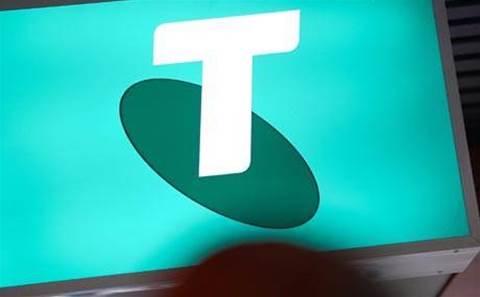Telstra is the latest telco to pin declining revenue and net profit on the Australian Competition and Consumer Commission's decision to cut mobile call and SMS termination rates last year.
The telco giant announced revenue for the first half of the 2017 financial year had slipped by nearly one percent to $13.7 billion. Net profit fell 14 percent to $1.8 billion in the same six-month period.
Telstra said the ACCC's mandate had resulted in a $400 million hit to revenue in the past six months. The consumer watchdog set a mandate early last year for telco's to reduce termination rates for calls from 3.6 cents per minute to 1.7 cents, and messages from 7.5 cents to 0.03 cents.
Australia's next largest telcos Optus and Vodafone have chimed up in the past about their own financial burden from the mandate. The ACCC also ordered the telcos to reduce backhaul prices last year, which cut another $38 million from Telstra's revenue.
Telstra said that revenue would have grown by two percent if it wasn't for the ACCC's ruling.
Despite the financial hit, mobile revenue was far and away the biggest earner in Telstra's technology empire, which also includes fixed services and products, data and IP, IT services, global connectivity, media and NBN commercial works.
Mobile revenue fell nine percent, staying just above $5 billion during the half-year despite adding 200,000 new retail mobile customers. Telstra blamed the slide on increased sharing through handsets and declines in hardware sales.
Telstra's IT services division continued to make strides following two major acquisitions in the past few years that propelled sales in cloud services,
The Network Applications and Services (NAS) business pulled $1.5 billion in the six-month period, growing $225 million, or 18 percent. Earnings exploded by 333.3 percent, up from $27 million to $90 million.
NAS includes managed network services, unified communications and integrated services, but it was cloud and industry solutions that were the big winners.
Cloud services revenue grew 41.4 percent to $157 million off the back of growth in professional services and acquisitions, which includes Melbourne's Kloud and Pacnet.
Industry solutions grew 56.1 percent, which includes commercial work for the NBN. The machine-to-machine business was another big winner, with 13 percent revenue growth and 130,000 new services.
Looking ahead, Telstra chief executive Andrew Penn said the company was expecting "mid-to-high single-digit income growth" for the full 2017 financial year.
"In the second half of FY17, the [Mobile Terminating Access Service] impact in the first half will drop out of the comparison so the full year effect will be smaller, and the NBN rollout is expected to accelerate in accordance with the NBN corporate plan," he said.





.png&h=142&w=230&c=1&s=1)

_(27).jpg&h=142&w=230&c=1&s=1)
_(21).jpg&h=142&w=230&c=1&s=1)



.jpg&w=100&c=1&s=0)
_(8).jpg&w=100&c=1&s=0)











